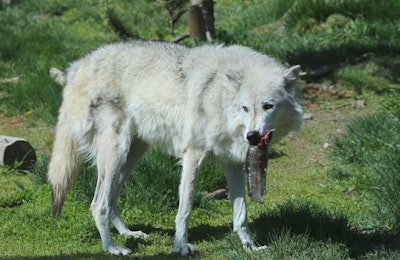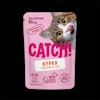
A trip down the pet food aisle in any brick and mortar store (and even searching ecommerce sites) can be overwhelming for any pet parent. Lately, the trend has been for pet food companies to place a picture of a wolf on the front panel of the bag and talk about the importance of ancestral diets, biologically appropriate diets, meat-rich diets, high protein/low carbohydrate, bringing out the wild side of your animal, etc.
Many of these concepts play on the belief that a dog is not different from a wolf and should be fed like one. Most searches on the internet have good stories to support their rationale; however, it is likely that the majority of pet parents have never questioned if there is any peer-reviewed science (or any science at all) that supports this belief.
Evolution from carnivorous diet to starch-rich foods
This brings us to the question many pet parents ask: Is my dog a wolf and should it be fed like one?
In short, the answer is no. Although dogs are descendants of wolves, their domestication by humans led them to evolve from a mainly carnivorous diet to foods rich in starch. In 2013, Axelsson et al. conducted whole genome sequencing of both dogs and wolves to identify genetic variants occurring through the domestication of dogs. Of the variants identified in the study, the researchers found differences in genes tied to brain function (domestication for certain roles/functions) and starch digestion (increased ability to digest starch vs. a wolf).
Still not a believer? In 1999, Murray et al. conducted digestibility studies looking at starches/flours in dogs. In their study, they investigated the starch digestibility of corn, barley, potato, rice, sorghum and wheat. The digestibility for all sources were greater than 99 percent. In 2015, Bazolli et al. found similar results looking at rice, corn and sorghum in dogs. Lastly, Carciofi et al. (2008) investigated the digestibility of cassava (tapioca) flour, brewer’s rice, corn, sorghum, peas or lentils in dogs. In all studies, starch digestibility was greater than 98 percent.
Pet food ingredient digestibility data
In summary, given the popularity of the internet and the ability for people to easily publish their opinions, pet parents should still look for the science that supports pet food label claims. Digestibility studies are one of the easiest studies to conduct (aside from palatability), and I encourage pet food manufacturers to provide that information and tell pet parents if they support their claims or ideas with actual data. Or, at least encourage consumers to look for peer-reviewed scientific literature (www.pubmed.com), ask their local veterinarian or a board-certified nutritionist.
Next topic: high protein
Next time we will discuss this topic: “It is not just about high protein.” If there are topics you would like to have discussed, feel free to comment below or reach out via LinkedIn: www.linkedin.com/in/ryanyamka.
References
- Axelsson et al. 2013. The genomic signature of dog domestication reveals adaptation to a starch rich diet. Nature, 495:360-364.
- Bazolli et al. 2015. Effect of the particle size of maize, rice and sorghum in extruded diets for dogs on starch gelatinization, digestibility and the fecal concentration of fermentation products. J. Anim. Sci. 93:2956–2966.
- Carciofi et al. 2008. Effects of six carbohydrate sources on dog diet digestibility and post-prandial glucose and insulin response. J. Anim. Phys. and Anim. Nutr. 92 (2008) 326–336.
- Murray et al. 1999. Evaluation of selected high-starch flours as ingredients in canine diets. J. Anim. Sci. 77:2180-2186.



















